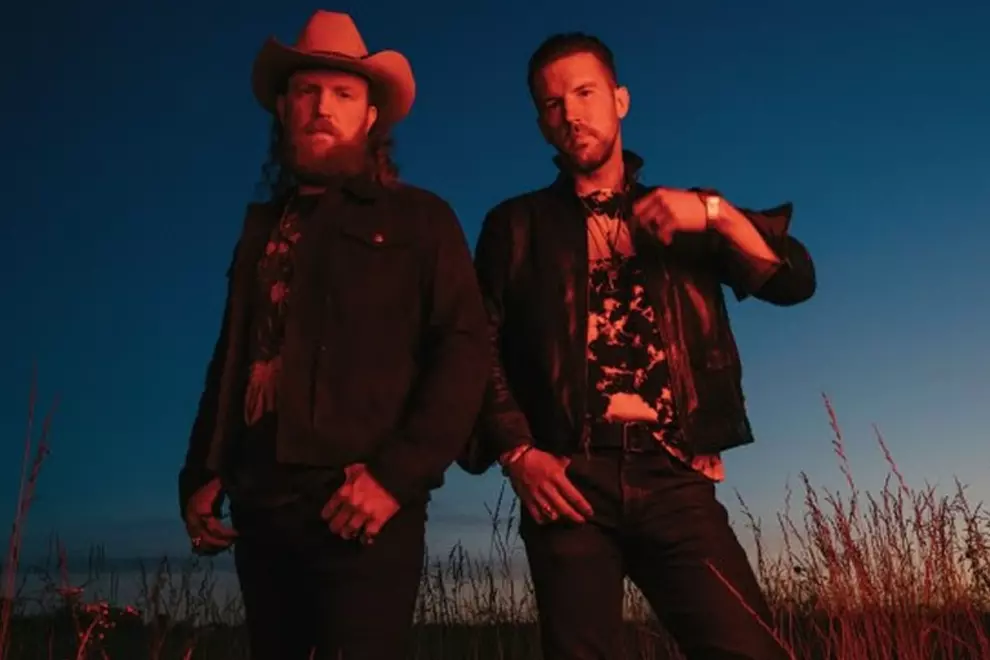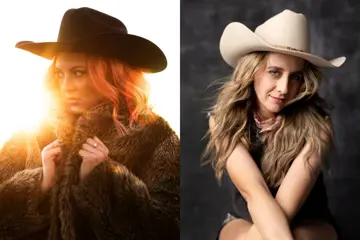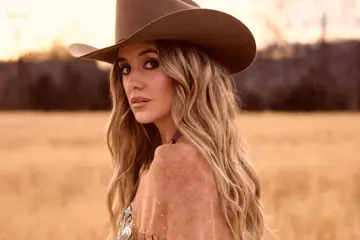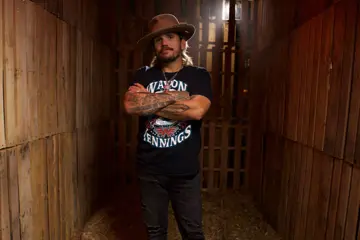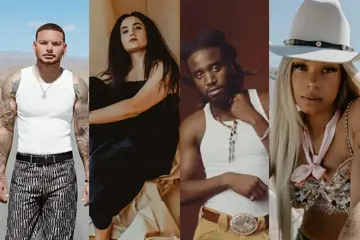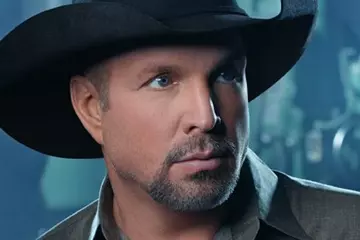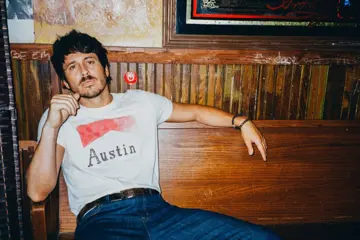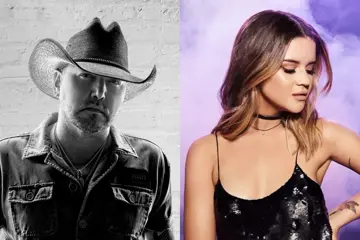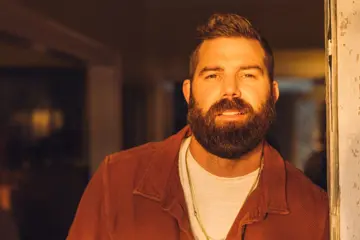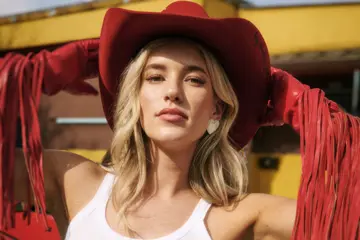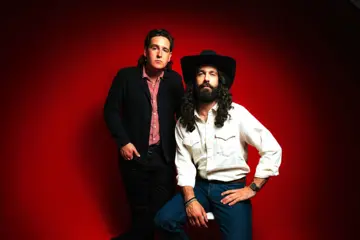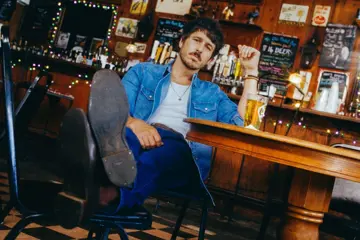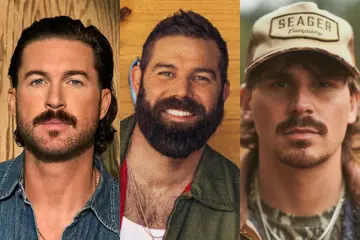Nashville’s Brothers Osborne recently released their third studio album, Skeletons, which saw John and TJ Osborne team up with long-time producer Jay Joyce and co-wrote every track on the project along with frequent collaborators Lee Miller, Craig Wiseman, Natalie Hemby, Casey Beathard and more.
Skeletons’ includes the single All Night which has been hailed by Billboard as a “feel-good, rocking ditty” while Rolling Stone calls it “a party-friendly tune that’s equal parts outlaw attitude, disco groove and ZZ Top-style boogie.”
Earlier this year, Brothers Osborne received their sixth Grammy nomination in the Best Country Duo/Group Performance category for their hit I Don’t Remember Me (Before You). This nomination joins their previously nominated performances for smash hit Stay A Little Longer, It Ain’t My Fault and 21 Summer. All three tracks are featured on their debut album Pawn Shop. In addition, they received Grammy nominations for their sophomore album, Port Saint Joe, and Shoot Me Straight.
I spoke to John Osborne to find out more.
You released your third studio album, Skeletons in early October during the covid pandemic, where artists and bands are limited by how much live music they can play. Has it been difficult to gauge how the album is being perceived by your fan base and others during the pandemic?
Join our community with our FREE weekly newsletter
It's hard to tell really. The best way to gauge how your fan base is doing is by going out and playing shows. It's, in my opinion, the best barometer for us to gauge how our music is doing and how our fans were reacting to it is to get out on the road and perform it and we unfortunately haven't been able to do that. Everyone is hungry for live shows, but I can promise you they're not as hungry as we are. We check the schedules every day hoping that shows aren't pulled or, if they're cancelled, they're at least moved but not too far away. We cannot wait to get back!
The internet is great, because it's been an amazing way to stay in touch and hear what the fan base is up to. We could tell they were thirsting for new music and since we put Skeletons out, we've had an amazing reaction from our fan base. But at the same time, the internet isn't exactly real. It's all a bit of a façade, so you can't necessarily gauge your entire career off of how you're doing on the internet because it's incredibly skewed. And it doesn't matter if it comes to your career, relationship with friends or family, or your political beliefs; it's all a bit left of centre.
The cover art has you and your brother TJ walking through a giant keyhole towards an ominous, orange skyline. What’s the meaning behind the striking cover?
We knew we wanted to title the album Skeletons because we loved how provocative it sounded and we knew there could be a lot of great imagery around it, but we also didn't want to go super on the nose with having a skeleton on the cover. So, we messed around with a couple of different ideas for a skeleton keyhole – and it never really panned out.
I actually designed the cover itself. The keyhole that you see is something that I cut out of three-quarter inch birch plywood. I backlit it, took a picture and put all the elements together. And I love the way that it ended up looking! To me, what it said was, there is light at the end of the tunnel, something unusual, new and bright through this keyhole. And musically, that's what we were trying to convey [too]. The record we made, we wanted it to be fun and exciting and feel like a different universe. We're Brothers Osborne, and all you have to do is hit play or walk through the keyhole.
I read a quote from you where you said, “If Pawn Shop was our introduction, and Port Saint Joe was like the first conversation we had with someone over a beer, then Skeletons is the moment where you start getting down to the real stuff and showing who you really are. If you really want to get to know us, this is the record to do it.” What do you think this album says or hoping it says, taking into consideration that people interpret music differently?
Yeah, exactly. That is music. Everyone interprets it in their own way. And that's one of the special things about art – it's not the same to every person that's listening or viewing it. But for us, it says a lot of the things that we wish we would have said before.
The song Lighten Up is a song about us realising we need to take a load off, relax for a minute, get together and enjoy each other. And that song, there's a lyric that references brother Jimbo, and that is our older brother named Jimbo. Dead Man's Curve is very loosely based on our sister.
If you listen to Old Man's Boots, that's a song about our childhood. Our dad's a plumber and he would have these work boots that were always beat to hell. And that's the song was about his boots, but really, the song was about our childhood and growing up with a dad that is a plumber. Hatin’ Somebody is about meeting in the middle and loving the people that might have a different opinion than you. And it's a lot of bigger, more life things that we wanted to mention. We referenced our grandfather that moved from the mountains of West Virginia to Baltimore – which is a city in Maryland where we're from – so you get a really good sense of who we are, how we grew up and what our background is in this record more so than any records past.
Why do you think your previous albums didn’t show that? Is that a natural progression for you as people and as a band where you feel more comfortable being more open and personal?
It is very much a progressive thing. I can only speak for ourselves. But on our first record, we were trying to write songs we thought people would like. On our second record, we got artistic musically and tried a bunch of different things, but were still writing songs that weren't intrinsically personal. And on this record, we decided [to] integrate a lot more of ourselves into this. Not only lyrically, but musically, really dig into our roots and the artists that inspired us growing up, and showcase those things on this record. That's why we say this record is more a reflection of who we are than anyone in the past. Instead of us trying to water those things down, we tried to lean into them.
Who are the artists who inspired you when you were younger, that are referenced to on Skeletons?
The ones that are obvious on the record … there's ZZ Top references on there ... Merle Haggard, the Allman Brothers Band, Lynyrd Skynyrd, Little Feat, Bonnie Raitt, The Eagles ... I can go on and on. You can hear references in there to those bands, if you listen closely.
I listened to it and thought the album challenges the country stereotype in the best possible ways. If I was an outsider, who wasn’t as aware of the ever-changing genre, and listened to the album, I would ask myself, “When did country get this varied, this fantastical, this cool and just so completely different than what my old-school expectations of what country is meant to be.” Were you meaning to push the boundaries of the genre with Skeletons? Was that the intention?
That's exactly what we're going for. We never want to be anyone but ourselves, and if being us meant that we sounded like the country stereotypes, then that's just what we would sound like. But unfortunately, being ourselves is the antithesis to the country stereotype. We're not going to change anything about ourselves due to that. In fact, this record, we decided to double down on those things. We're not afraid to not only be ourselves, but to shine a light on all of the things that make us different. We’re lucky because we have a very supportive family who allows us to be who we are. But also, where we come from, if you try and be someone you’re not, you’ll get told off for it.
That’s a very common country-thing here as well.
Yeah [laughs]. I mean, honestly, when it comes down to it, people don't like bullshit. Even if you're someone that has an opinion that's different to someone else, I think if you are honest about how you feel and you do it in a way that's not condemning, disrespectful or judgmental, then people inherently, deep down, respect those things.
From the very beginning to completion – how long did Skeletons take to complete?
This question is hard to answer because that requires actual numbers [laughs]. If I had to guesstimate, I'd say the oldest song on the record is Dead Man's Curve. We had written Dead Man's Curve before we recorded [our first album] Pawn Shop. We rejected it for [our second album] Port Saint Joe, and then we decided that it fit perfectly on this record. The song itself, we felt wasn't complete, so we made a couple adjustments to the lyrics to improve it. We've had songs almost make it on this record that were seven years old, but as you evolve as an artist, as a creator, as a writer, it's very hard to find songs that fit your general narrative now, because we evolve as people, and as we evolve as people, we evolve as creators.
I would love to have a six-month block where we do nothing but write and record, like they have done on very famous records, especially in the rock world. But for a touring band, like ourselves, we don't have the luxury of time to do that, so we write in our time off basically. I mean, there’s no such thing as time off for a working musician, you work every day.
When we’re playing 120 to 150 shows a year and travelling extensively globally, having days to recuperate and get a night’s sleep, we strangely don’t have a lot of time to write. So, we have to make sure that we’re doing it as much as possible, so we don’t end up with a lack of material for a record. When we're back in town and we have a couple of days off, that's when we write and, when it comes time to record a record, we take that collection of songs, whittle it down to our favourite 30, then we start whittling those down to 15, then you record. We recorded 14 [songs], and then kept 12.
The album features your first fully instrumental song called Muskrat Greene. Is that also something that goes back to you evolving as artists and creators?
Yeah, that goes back into Dead Man's Curve. One of the things that we felt Dead Man's Curve was lacking more musicality. I happened to have an instrumental that I had been working on while we were out on the road. I have a lot of instrumentals saved on my phone, I was listening to them, and I came across that one and I realised it was the same tempo, the same key as Dead Man's Curve. I brought the idea to TJ [to] record the instrumental. We butted up against Dead Man's Curve to make it all sound like one piece of music [and] he loved that idea. We tried it and it worked very well.
One of the ways we want to separate ourselves from a lot of bands is show that we are in fact a band. To showcase that, we wanted to be musicians and just play. We've been shown time and time again that our fan base really enjoys the musicality of the band, so we wanted to give them more of that.
Something I found interesting about Brothers Osborne, that others may not know, is that your full name is John Thomas and your brother is Thomas John. Being how your names are directly flipped, do you have opposing personalities or are you quite similar?
I always joke that my brother and I either disagree 100% or we agree 100%, but it's good because we need to have those different opinions in order to create something. He and I are very different people [with] very different tastes. We have different lyrical sense. We have different melodic sense. As difficult as it can be, it goes into what Brothers Osborne sounds like.
But in other ways, we're very similar. We can finish each other's sentences, and, what would take someone 20 minutes to say, we can hash it out in a few words and it's over. Or someone could do something that's funny, and all we have to do is look over and we know what we think is funny, but no one else gets it. So, there is this collective consciousness that we have as brothers, even though we are very different.
Keep up to date with Brothers Osborne on their Facebook page here.
For more in-depth interviews on CountryTown, check out here.
